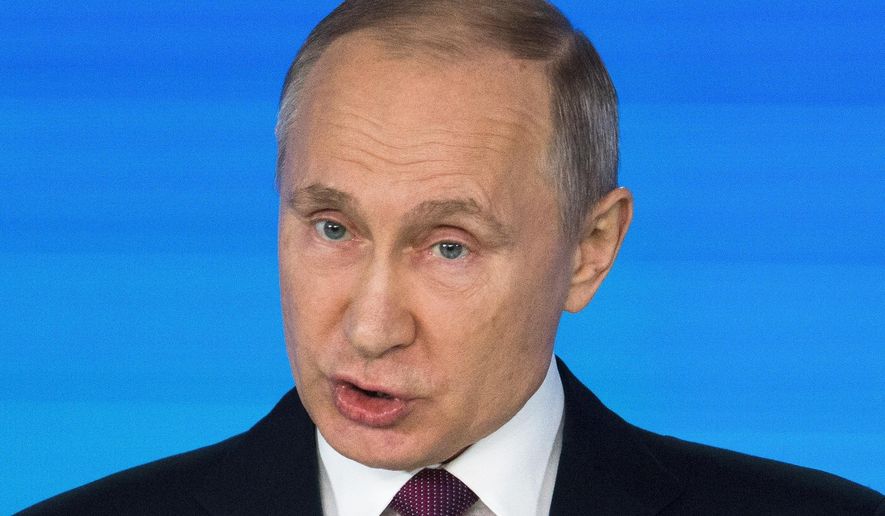More than 4 percent of all tweets from the internet Research Agency (IRA) — Russian President Vladimir Putin’s online propaganda outfit charged last month by U.S. investigators with engaging in “information warfare” against the American political system — targeted energy issues and the energy sector, according to a new congressional report.
The House Science Committee report offered an extensive account of what it says were covert Kremlin efforts from 2015 to 2017 to use inflammatory social media posts to distort online discourse about U.S. energy markets, pipeline development, fracking and climate change.
The equal-opportunity hacking was meant to raise tensions on both sides of the U.S. debate.
“By posting content that supports positions held by both liberals and conservatives alike, the Russians used social media to instigate and inflame discord in the United States,” the report states. “Russian social media manipulators intentionally injected foreign propaganda into American political discourse.”
The ultimate goal, the report said, was to benefit the Russian energy sector, which is the country’s biggest export revenue generator.
“It certainly is an attack on the United States to try to prevent us from enacting energy policy that benefits the American people,” committee Chairman Rep. Lamar Smith said in an interview.
The Texas Republican said Russian-sponsored operatives specifically exploited Facebook, Twitter, and Instagram to push toxic “clickbait” aimed at thwarting fossil fuel research and development and hindering efforts to expand the use of natural gas.
“Russia obviously benefits by having fewer exporters to European countries and they feel threatened by U.S. energy policy,” Mr. Smith said. “Clearly there is a geopolitical component here.”
Russia has denied trying to hack the 2016 presidential campaign or the U.S. political debate.
The IRA’s St. Petersburg-based internet troll farms, which special counsel Robert Mueller’s targeted last month in a series of indictments, launched disinformation attacks targeting the divisive debates over the Dakota and Keystone oil pipelines, in addition to other projects.
The report also said that Russian-sponsored agents funneled cash to U.S. environmental groups to portray energy companies in negative ways and disrupt domestic energy markets.
Committee staffers said they began probing Kremlin attempts to influence America’s energy markets in the summer of 2017 while investigating an intricate Russian money-laundering scheme designed to smear U.S. environmental organizations and distort the domestic energy debate.
“The committee will continue to work with social media companies, which have taken positive steps to bring transparency to the online debate,” the report concludes. “Americans have a right to know that much of what they view online is being disseminated by foreign agents in an effort to disrupt U.S. energy policies.”
• Dan Boylan can be reached at dboylan@washingtontimes.com.




Please read our comment policy before commenting.